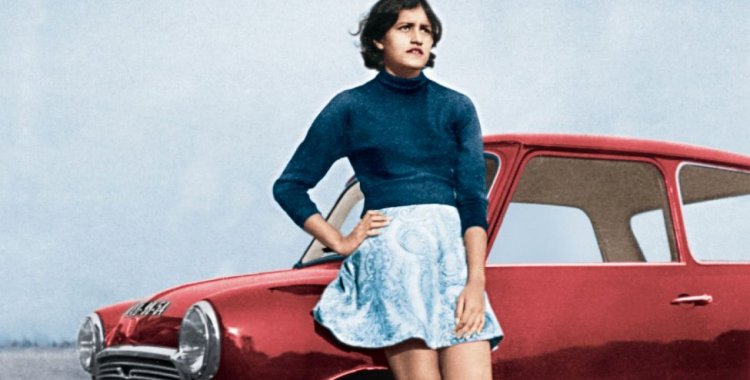In a "letter to Angola", the orphans denounce the "propaganda machine" of the Government and of CIVICOP - Commission for Reconciliation in Memory of the Victims of Political Conflicts, when carrying out funeral ceremonies and handing over bodies "in widely televised public ceremonies, on the eve of presidential elections", which they now describe as "an exercise in cruelty".
"The country saw it. The whole country saw and lived this moment as a time of truth and reconciliation. However, not all of us uncritically received the remains that were indicated to us as belonging to our parents. Some of us asked for DNA tests to be carried out to confirm the identity of the corpses", they explain in the document.
Last year, the Government held funerals for Alves Bernardo Batista "Nito Alves", Jacob Caetano João "Monstro Imortal", Arsénio Lourenço Mesquita "Sihanouk" and Ilídio Ramalhete, victims of the alleged coup d'état on 27 May 1977 .
In the place where these bones were found, would also be those of José Van-Dunem and Sita Vales, a young couple of leaders of the Popular Movement for the Liberation of Angola (MPLA), who were murdered during the repression that followed, but their relatives required new forensic examinations, and a team of Portuguese specialists went to Luanda, led by the former president of the National Institute of Legal Medicine and full professor at the Faculty of Medicine of the University of Coimbra, Duarte Nuno Vieira.
According to the orphans, "it was with astonishment and pain" that "after carrying out the tests, it was concluded that none of the samples correspond to the corpses of the parents".
A family member of the victims told Lusa that the Portuguese experts found eight bodies mixed in bags, had to reconstitute each body and then carry out the exams. "One of these bodies, among the eight, was just a jaw. Among these were two children," he reported.
In the letter, the orphans of the M27 association express themselves as "incredulous", lamenting that the "amputated family life" and "marked by sadness" of the loss of their parents has witnessed an "exercise in cruelty, in which feelings of loss, pain and heartache, with goals that are far from noble".
"And if none of the examined remains correspond to the people to whom they were said to belong, what will happen to the mortal remains already handed over to the families and buried without prior examinations?", they question.
The orphans also criticize the methodology followed by CIVICOP, because it involved people linked to the repression in May 1977 and who had no interest in restoring the truth, and it did not include representatives of the victims, nor did it clarify the procedures adopted in locating and identifying the corpses.
"There is certainly still much to be revealed about what happened on May 27, 1977, about the events that preceded it and about the barbarism that followed", they highlight in the open letter addressed to their compatriots.
The orphans also emphasize that about a year and a half ago they saw "a light at the end of this long tunnel", with the recognition by President João Lourenço, for the first time in the history of independent Angola, of the excesses of the State in the events that followed. to the 27th of May, which included the death of citizens.
A gesture that, they say, they initially looked at "with distrust, as it was unprecedented, as it took place in a year before the elections", but which they ended up recognizing as the first genuine sign of a public search for the truth and an intention for reconciliation.
"At the same time, a whole propaganda machine was created that could guarantee anything but rigorous work and a serious result", they add, pointing to the television showing of images of backhoe loaders, which would be removing mortal remains and the public announcement of the possible location of corpses. of people, "reviving feelings of deep emotion and suffering in families".
Now discovering that the DNA samples do not correspond to the corpses of their relatives, the orphans ask that those responsible and participants in the repression – many of whom are still alive and identified – be called upon to indicate, under oath, the places where they were buried or thrown the bodies that they took or ordered to take the life.
"Forty-five years is enough time to face the truth and for the country to face its traumas", they underline in the letter. "We will not be able to overcome this tragedy and learn from it if we continue to refuse to truly face the facts", say the orphans, who want to "publicly express their disappointment with this whole process", and appeal to the people "to unite in the search of the truth".
On May 27, 1977, an alleged coup d'état attempt, in an operation allegedly led by Nito Alves - then former Minister of the Interior from independence (November 11, 1975) until October 1976, was violently repressed by the regime of Agostinho Neto.
Six days earlier, the Popular Movement for the Liberation of Angola (MLPA) had expelled Nito Alves from the party, which led the former minister and several supporters to invade the Luanda prison to free other sympathizers, while simultaneously taking control of the national radio station, a movement that became known as "fractionism".
Troops loyal to Agostinho Neto, with the support of the Cuban military, ended up establishing order and arresting the rebels, followed later by what became known as the "purge", with the elimination of the factions, with around 30,000 people being killed. , for the most part without any connection to Nito Alves, as stated by Amnesty International in various reports on the subject.
In April 2019, the President ordered the creation of a commission (the CIVICOP), to draw up a general plan to honor the victims of the political conflicts that took place in Angola between November 11, 1975 and April 4, 2002 (end of the war civil).






